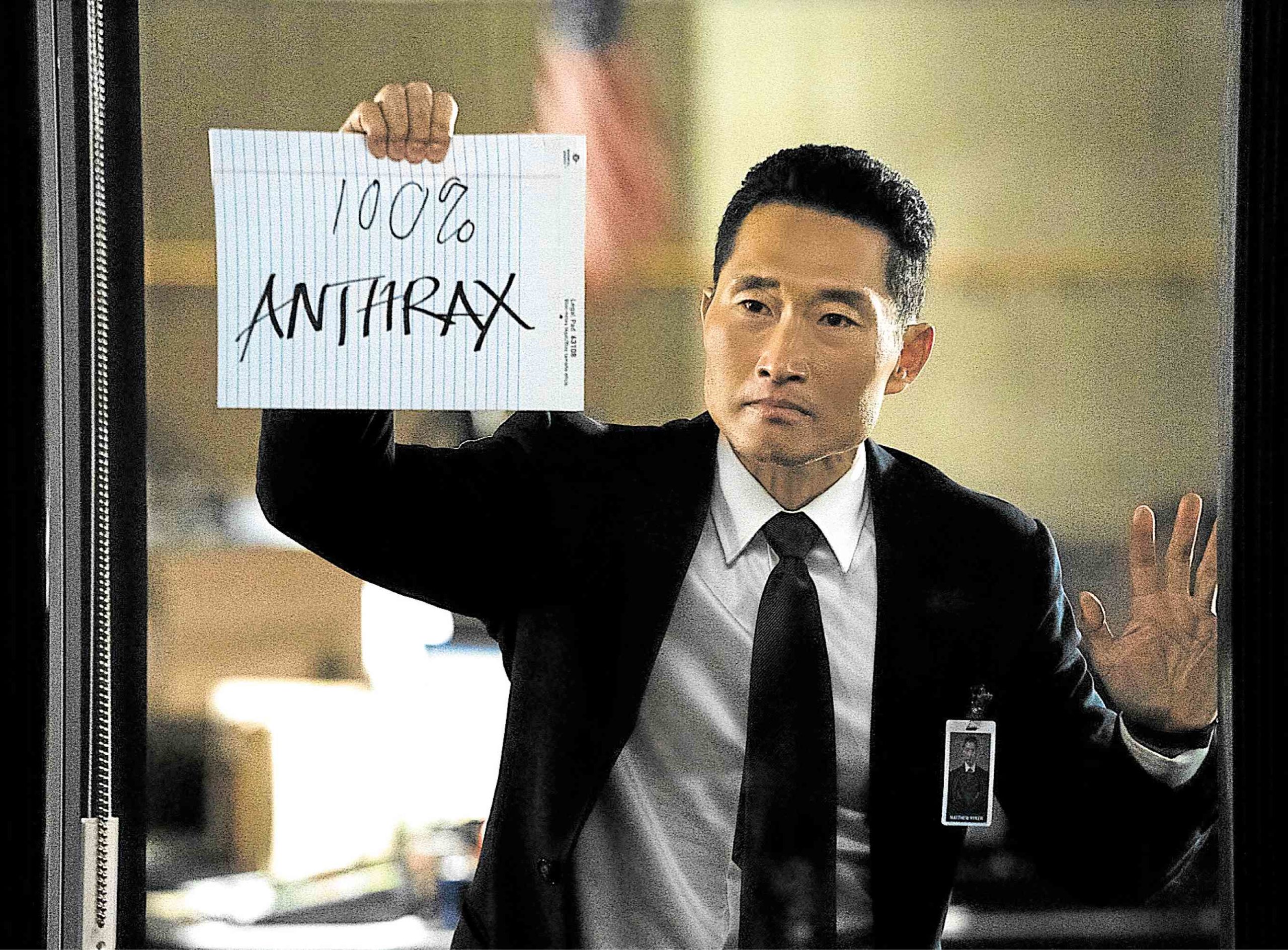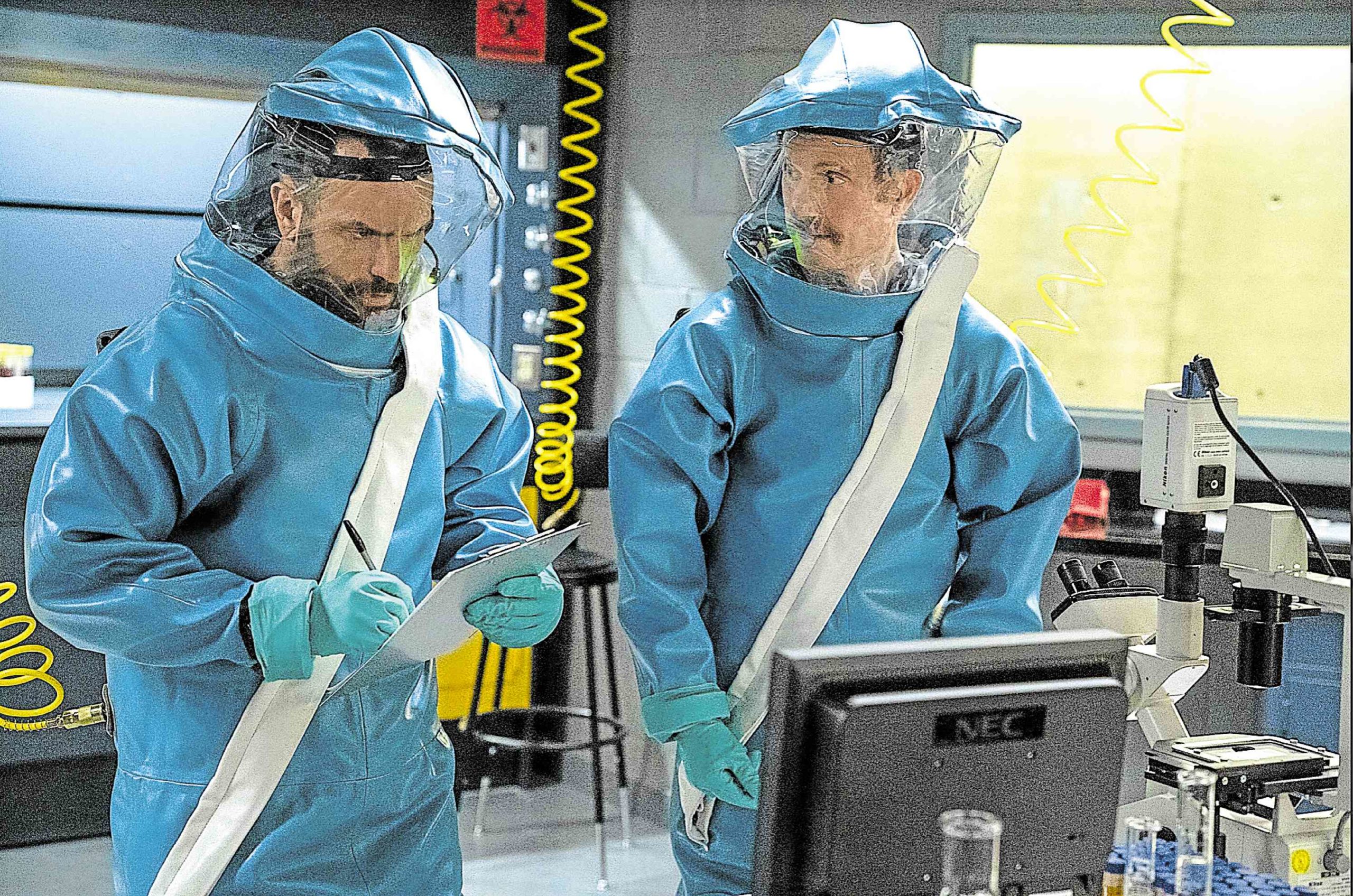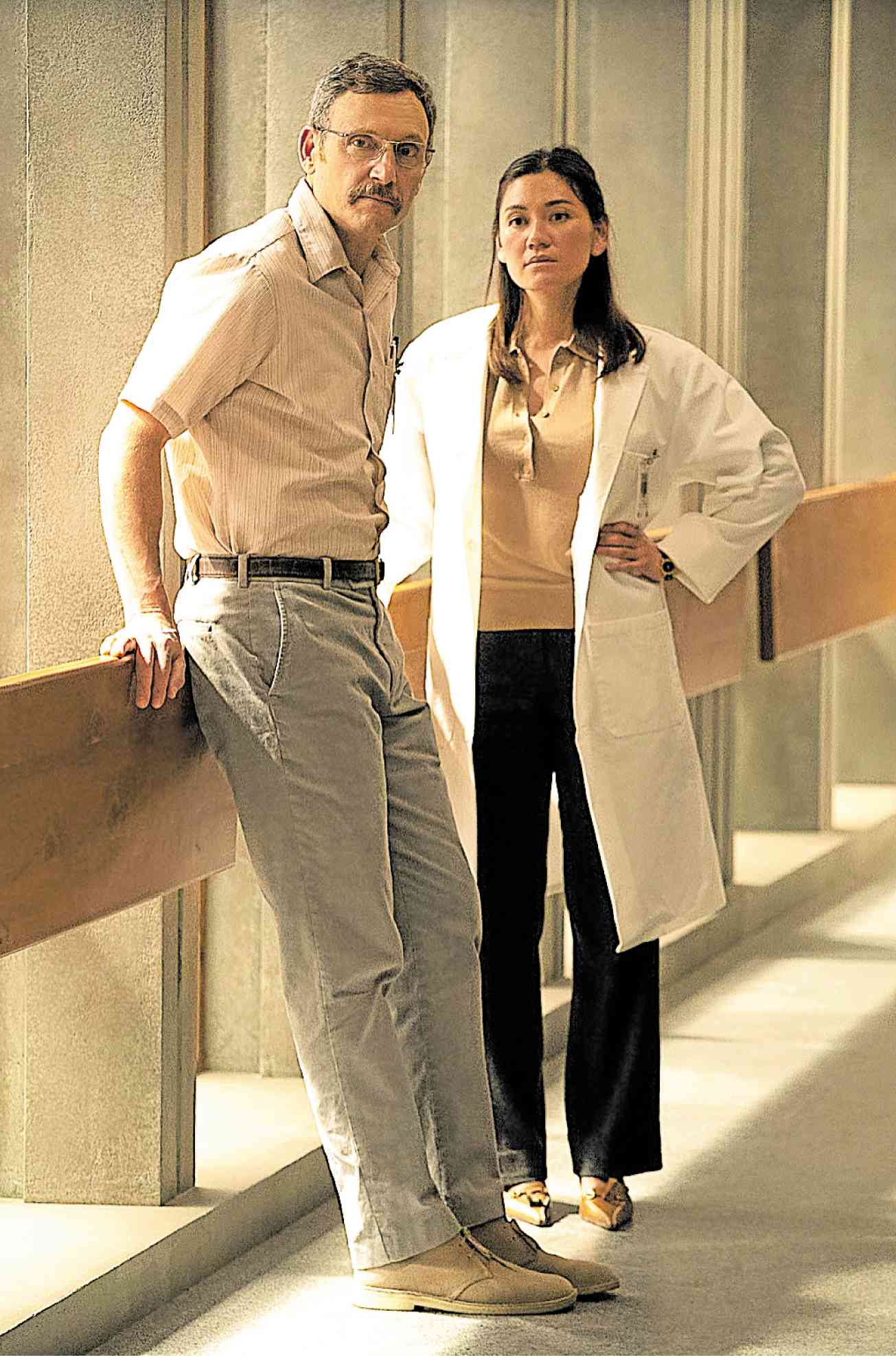Daniel Dae Kim on lessons from terrorism, racism and his TV series ‘The Hot Zone: Anthrax’

Daniel Dae Kim as FBI Special Agent Matthew Ryker—PHOTOS BY PETER STRANKS/NATIONAL GEOGRAPHIC
The US Federal Bureau of Investigation (FBI) describes it as “one of the largest and most complex [investigations] in the history of law enforcement.” But coming on the heels of the series of coordinated terrorist attacks on Sept. 11, 2001, there was valid reason for everyone to get scared out of their wits when the anthrax attacks began one week after the World Trade Center came crumbling down.
In what would be known as the Amerithrax scare, anthrax was weaponized in powder form, its deadly aerosolized pores easily inhaled from letters mailed to the perpetrator’s intended victims. At the time, the last natural human infection of anthrax was recorded 30 years ago.
Inspired by true events, “The Hot Zone: Anthrax” is the six-part second season of the “Hot Zone” series. Part 1, about the Ebola virus outbreak in 1989, was topbilled by Julianna Margulies. This time around, the drama anthology follows the investigation that takes place after letters containing anthrax are sent to unsuspecting victims in Florida, Washington, DC and New York.
Some of the deadly mail’s famous recipients were supposed to include broadcast journalists like NBC Nightly News’ Tom Brokaw (played by Harry Hamlin) and a string of Democratic senators. The letters killed five people and consequently caused panic.
Was America facing a second wave of attacks, this time in the form of a biological weapon?
Given the widespread anxiety that led to the ensuing investigation, lead actor Daniel Dae Kim (“Lost,” “Hawaii Five-O,” “Avatar: The Last Airbender,” “The Good Doctor”) said it wasn’t hard to see the relevance and thematic pertinence of a story that took place 20 years ago. “It was an event that was so important to Americans at the time—and even now,” said Daniel when we asked him during our one-on-one interview with the 53-year-old actor. “You know, 9/11 was a tragic event that shaped a generation—everyone in America knows where they were on that fateful day.
“And the fact that the anthrax attacks happened only weeks after that tragedy left more Americans than I ever remember feeling vulnerable and scared—because we’ve never had attacks like those on American soil before.
“I think telling the story of that time in America is really important, especially in light of what we’ve been going through recently. There are similarities with how we’ve dealt with COVID, which is more of a global event. We’ve had a country that had to come together, only to be pulled apart by politics.
“So, in a way, it parallels what happened after 9/11. I found that to be really interesting. And I also like my character, how he progressed through this investigation, and what he did to solve the crime.”

Scene from “The Hot Zone: Anthrax”
Web of psychological warfare
The show’s brand-new season will premiere during a three-night event beginning 10 a.m. tomorrow on National Geographic (channels 41/195 on SkyCable; channels 141/240 on Cignal).
Leading the case is Matthew Ryker (Daniel), a Korean-American FBI agent with a specialty in microbiology, who finds himself ensnared in a complex web of psychological warfare as he and his never-say-die team, including agents Dani Toretti (Dawn Olivieri) and Chris Moore (Ian Colletti), track down the killer.
Just as deeply embroiled in the hunt for the anthrax killer is microbiologist Dr. Bruce Ivins, portrayed with show-stopping flair and aplomb by the hardly recognizable Tony Goldwyn, whose performance is as award-worthy here as his turn in Reinaldo Marcus Green’s Oscar-bound tennis drama “King Richard.”
Another crucial character is virologist-cum-bioweapons specialist Steven Hatfill (Justin Mader). In no time, both Bruce and Steven are thrust into the narrative’s crime-busting limelight. But are they heroes or heels?
When we attended “The Hot Zone” press event at a TCA (Television Critics Association) panel a few months ago, Tony explained to us what he did to “vanish” into the role.
“I read a lot and picked (showrunners) Brian Peterson and Kelly Souders’ brains as much as I could,” he recalled. “There was a very interesting biography—called ‘Mirage Man’—that I discovered about my character, Bruce Ivins, who’s a very complicated guy.
“The book served as a ‘bible’ to me. It was extremely helpful because it had lots of details about Bruce’s life, his psyche and the investigation itself. I also spoke to experts in different fields related to microbiology and psychiatry, and some of the issues that impacted Bruce’s life.”
During our exclusive interview with Daniel, we told the actor about what, for us (after watching all six episodes in one go), makes the series a veritable nail-biter. While vastly entertaining, the series made even more compelling by the unforced approach it utilizes to balance its disparate themes—from the use of biological pathogens as weapons of mass destruction, to the racism that comes out of it. More than that, it manages to shine the spotlight on mental health in times of crisis.

Tony Goldwyn (left) and Vanessa Matsui
‘Learn from mistakes’
Asked what his biggest takeaway was from the series, Daniel said, “I think everything that you just said … that’s it! You answered the question better than I could. But to add to that, I would say that it’s really important to take away the lessons that we learned during that time.
“We need to learn from the mistakes we made, not just in the investigation that took place, but also in the mistakes we made as a country … how we view people who don’t believe in the same religion as the majority of Americans.
“Then, there are lessons that we can all learn when we make assumptions about people based on their appearance or who they pray to. In this particular case, there were assumptions and mistakes made, which just highlight the idea that we need to be evidence-based and fact-based. We need to do our homework and research … all of these things are pretty applicable to our situation today.”
At the TCA event we mentioned, Daniel disclosed that his character, Matthew, wasn’t a real person, unlike some major ones in the series. He said that Matthew was “an amalgamation of different persons,” then proceeded to describe his getting cast in the lead role as “a sign of progress.”
Did Daniel have a specific person in mind when he was in the process of creating his character “from the ground up”?
“It wasn’t a specific character per se,” he replied. “I worked closely with the showrunners and directors to come up with this amalgamation of many different FBI agents. I wanted to make Matthew universal, but I also needed to make him very specific.
“There wasn’t any particular person to base him on, although I did speak to a number of agents, some of them Asian-Americans. So I was also able to draw from their experiences.”
Hate crimes
We pointed out how significant Daniel’s lead role was because Matthew, as written, is Asian-American—a crucial role in a position of power created at a time when we hear a lot of anti-Asian hate crimes in mainstream America.
“You know, I take pride in the fact that I work very hard as an actor,” Daniel told us. “But this guy works ridiculously harder! One of the things that I learned about FBI agents after 9/11 was that most of them did not sleep for a week or two after the twin towers fell.
“They were working 12-hour shifts. And when their shifts were done, they would go to Ground Zero and continue looking [for survivors or victims] or volunteering to do whatever they could to help. Like Matthew, a lot of the FBI agents investigating the anthrax attacks were actually doing this incredible work that 99 percent of us would not do!
“In fact, they went through every letter that came through this particular mail-processing station … that’s every single one of tens of thousands of letters! But that’s exactly the kind of persistence required to find the individuals who committed this crime.
“So, it was really satisfying to know that there were those of us out there who were that dedicated to their work … and to helping others.
“But that wasn’t the only challenge for me while shooting this series. This was filmed during the COVID lockdown in Canada—and it was really hard! Because when you’re dealing with a subject matter that’s as rigorous and all-consuming as this one, you sometimes need to take a break.
“You need to be able to blow off some steam on weekends. But not having that outlet was truly challenging and made things very difficult while you’re dealing with COVID, the lockdown and the weather!”














